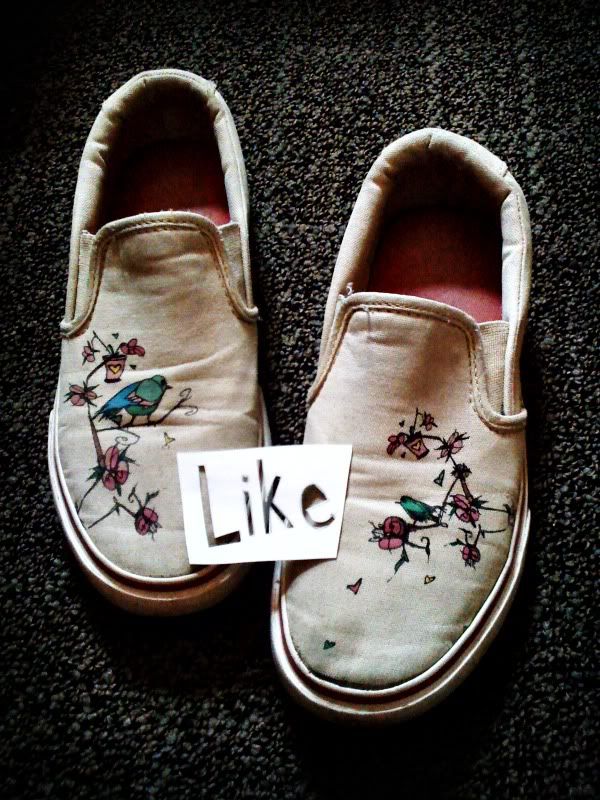Joe just posted a picture of him and his new 'stache -- you like this. Bob Saget might make an appearance at Slope Media Group's Earth Day celebration -- you like this. [He didn't show up, by the way. Whatever.] I'm willing to make the sweeping assumption that Facebook's "like" feature is the one social media quirk that we all wish we had in real life. (There's a llama on Ho Plaza? Automatic like!)


Just based on my intuition, it seems that becoming a fan of Procter & Gamble has a much stronger connotation than simply liking Procter & Gamble. Liking is milder -- more mild? -- than being a fan; it requires less allegiance. In general, I am more willing to respect the opinions of people who are devoted to a brand, because I assume that those people are devoted for a reason. It gives me more incentive to try out the company's products or services. (And this is half the battle, isn't it? To merely get your market to try out what you're offering?)
Simply stated, we like to like. And lucky for Facebook, too. This little notion puts them in a prime position to stir up a lot of buzz in the marketing/advertising industry, especially given the recent replacement of their "Become a fan" feature with the "Like" button.
The interesting thing about liking something is that it doesn't require much commitment. You can "like" as many things as you want. (We do this all the time in the physical world; we like colors, we like food, we like events that take place.) In contrast, people are typically more cautious to actually become a fan of those same things. Announcing to the world that you are a fan of a company or a person just seems to demand and indicate more enthusiasm and more devotion toward that name.
Becoming a fan versus liking really seems to boil down to the level of commitment you're willing to offer. It's kind of like dating versus being "just friends." Just because I like hanging out with my boy friend doesn't mean I want to actually call him my boyfriend. (Take note, boys.)
Now that Facebook has done away with its "Become a fan" option, companies don't have to worry as much about commitment. They can gather multitudes of fans and followers without too much difficulty. Customers can get involved way more easily because they don't have to climb over any sort of significant barrier.


I wonder, though, if this change will have implications for consumer action. Several of the articles I've read seem to suggest that with the replacement of the "Become a fan" feature with the "Like" feature, more people will be both willing and inclined to "like" brands, and their approval will nudge their friends and family and possibly their general network to develop an interest in the brand.
It's sort of this idea of referrals, right? We trust and value what our significant others, family, and friends think. If Jamie likes Cost Plus World Market, then I will think to myself, Well, maybe it's worth checking out. Similarly -- but on a different plane of understanding -- as humans, we have a desire to be accepted and approved by others, so it's possible that if my friends "like" Chick-fil-A on Facebook, then I might try to like -- in real life -- Chick-fil-A too, for the sake of social validation.* (Of course, this is totally my own personal speculation/theorizing... but it's certainly something to consider.)
However, at the same time, since we are very used to Facebook-liking everything, it's very plausible that as we "like" more and more pages, our actions and the attitudes that we hold toward a company and convey to our contacts will become less meaningful. Think along the lines of "boy who cried wolf."
Just based on my intuition, it seems that becoming a fan of Procter & Gamble has a much stronger connotation than simply liking Procter & Gamble. Liking is milder -- more mild? -- than being a fan; it requires less allegiance. In general, I am more willing to respect the opinions of people who are devoted to a brand, because I assume that those people are devoted for a reason. It gives me more incentive to try out the company's products or services. (And this is half the battle, isn't it? To merely get your market to try out what you're offering?)
In conclusion, I have no answers. Will Facebook's Like feature be successful at developing and retaining customer loyalty? Who knows? There are so many factors associated with it, so many nuances... but it's a fascinating dynamic, that's for sure, and it's one that we can all keep our eyes on.
*I don't feel that social validation kicks in as much when you find out people are "fans" of something. "Fans" tend to be at more extreme ends of the spectrum, so generally speaking, we might not feel the need or obligation to identify as much with them. However, when two people like the same thing, they are usually brought closer together, so in that sense, "liking" seems to have a greater impact on relationship development -- at least on the surface. Going along with this train of thought, if we find that our friends/family/significant others/crushes "like" certain brands, we might be more inclined to try out the same brand, simply to increase our chances of being favorably received and accepted by the others.
No comments:
Post a Comment